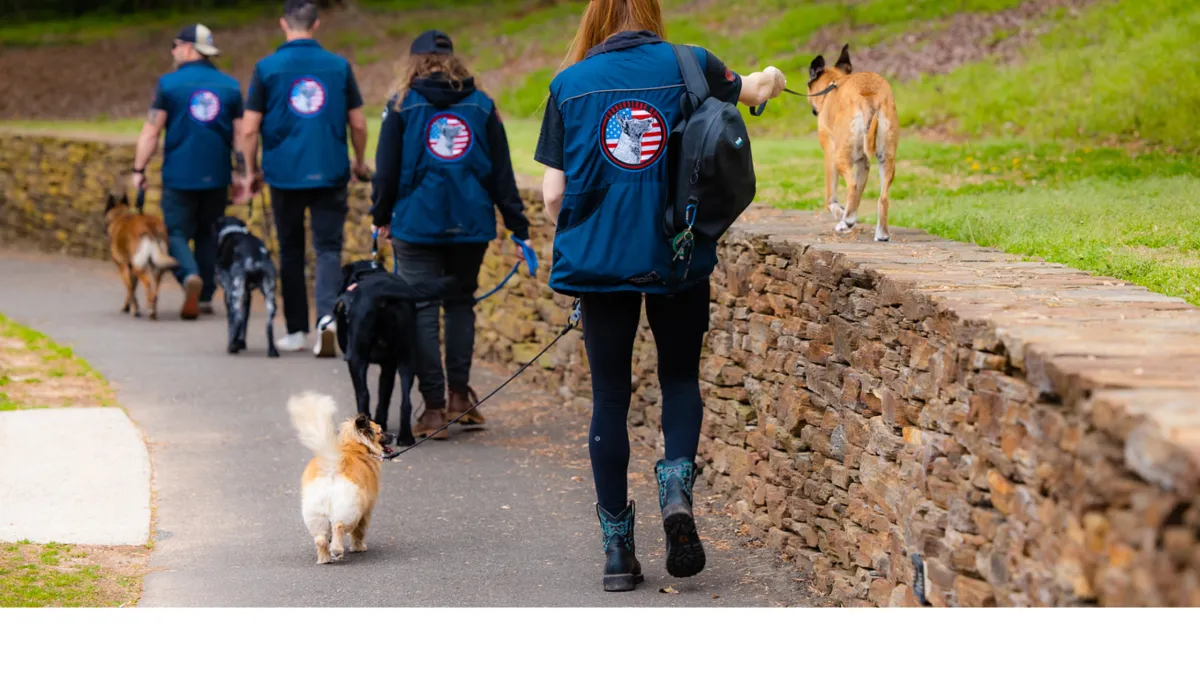
When Should You Start Puppy Training? A Complete Timeline for New Dog Owners
Deciding when to start training your puppy can be a critical decision for new dog owners. By establishing a clear training timeline, you create opportunities for learning that will lay the foundation for a well-behaved and happy pet. Utilizing authoritative methods and resources, this guide will discuss when to begin puppy training and provide a step-by-step approach for tailoring training sessions to your dog's developmental stages.
Understanding the Importance of Early Puppy Training
Training during the early stages of a puppy's life can have significant benefits. According to a study conducted by the American Veterinary Society of Animal Behavior (AVSAB), puppies are best equipped to learn between 3 to 17 weeks of age. This is the ideal period for socialization and learning basic commands—an opportunity that lays the groundwork for a lifelong partnership between you and your dog.
Assessing the Optimal Age for Puppy Training
Puppy training can begin as early as 7-8 weeks old when cognitive development is at its peak. Most puppies are ready to start learning simple skills and commands such as "sit," "stay," and "come" during this period. Training helps establish communication and trust and is vital in preventing problematic behaviors from persisting into adulthood.
The Critical Socialization Window
One of the most crucial training steps is socialization. At around 8-12 weeks of age, puppies are most receptive to new experiences, including interactions with people, other animals, and different environments. Socialization counters fears and helps develop a more adaptable, sociable dog. The process requires time and patience, where positive reinforcement is the key to ensuring a pleasant experience for the puppy.
A Roadmap to Basic Obedience Training
Around 12 to 16 weeks old, puppies are prime candidates for basic obedience training. Commands such as "sit," "down," and "stay" are the foundation building blocks of a dog's obedience repertoire. Consistency is crucial for a successful training regimen, ensuring that every person interacting with the puppy uses the same commands and rewards positive behavior. Each session should be short and sweet—lasting only about 5-10 minutes to retain the puppy's attention.
Addressing Behavioral Issues in Adolescence
Adolescent puppies, typically between 5 to 18 months of age, often test boundaries and may develop behavioral issues if not properly managed. It's imperative to continue reinforcing the training basics during this stage. Troublesome behaviors such as digging, excessive barking, and unwanted chewing can be mitigated through continued obedience practice and increased physical and mental stimulation.
Importance of Positive Reinforcement Techniques
Using positive reinforcement methods, such as treats and praise, capitalizes on a puppy's natural eagerness to please. This approach encourages desired behavior, making training a rewarding experience. It is vital to reward good behavior immediately to strengthen the association between the command and the positive outcome.
Enrichment Activities for Puppies
Incorporating mental enrichment activities enhances your puppy's cognitive development and can supplement traditional training methods. Techniques such as puzzle toys, agility courses, and scent games cultivate a puppy's curiosity and provide a chance to apply learned commands in a fun context, reducing boredom and preventing destructive behavior.
Preparing for Advanced Training
By approximately 6 to 14 months, most puppies are ready to transition to more advanced training disciplines, such as agility or rally. Advanced training isn't merely about performance but also deepening you and your puppy's partnership. Engage with an experienced trainer for structured programs designed to build upon the basics learned during earlier stages.
The Role of Experienced Trainers and Obedience Schools
Professionals such as those at Cornerstone K9 provide structured environments where puppies can enhance their learning through social and controlled settings. The guidance from expert trainers allows owners to address specific challenges with customized training plans. Attending obedience classes contributes to consistent progress and provides social interaction with other puppies.
The Lifelong Journey of Training with Your Dog
Training doesn't conclude as your puppy matures. Ongoing training and consistent refreshers are imperative to maintain the bond and ensure that your dog’s learned behaviors remain sharp. Healthcare professionals in veterinary science recommend continuously engaging your pet with physical and mental exercises through all stages of life, contributing to a balanced, content furry companion.
Key Takeaways
A well-planned training timeline is key to a harmonious relationship between you and your dog. This effort lays a pet's foundation, ensuring they grow into well-behaved members of your family. For dog owners seeking professional guidance, a consultation at a reliable facility like Cornerstone K9 might be the best investment you make in your pet's future.

